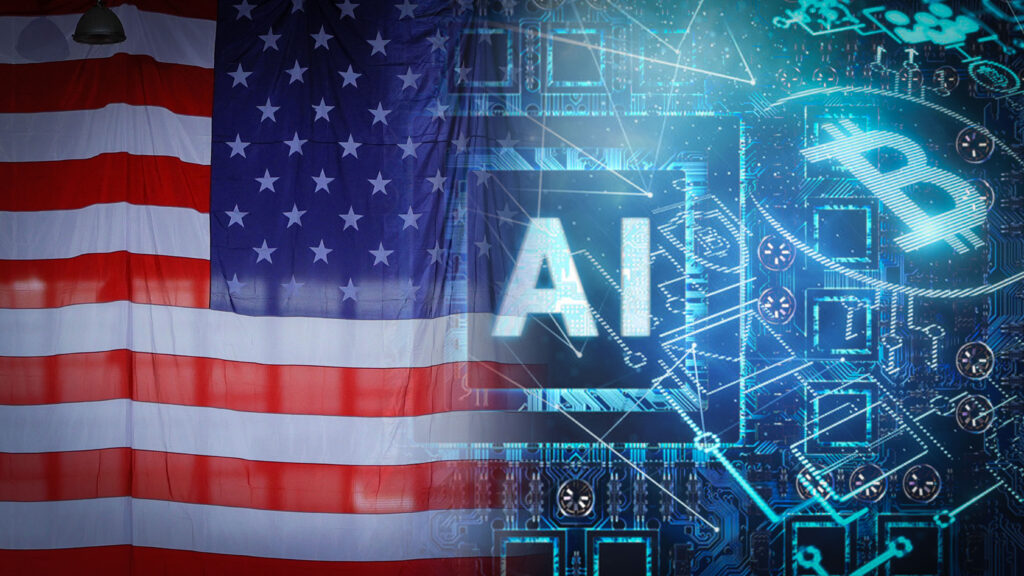Table of Contents
The Future of AI Policy in the United States Under Trump 2.0
As artificial intelligence (AI) continues reshaping industries worldwide, governments face balancing regulation with fostering innovation. AI is recognized as a key driver of economic growth, national security, and technological advancement in the United States. With the prospect of another Trump administration in 2024, questions arise about the direction U.S. AI policy might take under a renewed leadership. This blog delves into the potential policy directions, examining how AI could influence the U.S. economy, workforce, and security, and how policy decisions may shape the future of AI development in the U.S.

What is the Future of AI in the U.S.?
AI’s impact in the U.S. is projected to be transformative, with applications across healthcare, defense, finance, transportation, and beyond. The future of AI policy in the U.S. will likely involve decisions around national security, international competitiveness, privacy, and ethical considerations. Key areas of focus may include:
- Strengthening National Security
The U.S. has consistently aimed to maintain its global edge in AI technology, particularly in defense and intelligence. In a second Trump administration, AI policy might prioritize applications that bolster national security, with investments in autonomous weapons, cybersecurity, and data intelligence systems. Given the increased focus on China as a competitive AI force, U.S. policy could center on research to advance military-grade AI, ensuring that America retains a stronghold in AI-powered defense capabilities. - Boosting the Economy and Job Market
The AI sector is expected to contribute significantly to the U.S. economy, creating new job opportunities while also transforming existing roles. Trump’s economic focus has traditionally emphasized job growth, which could lead to AI policies that incentivize AI training programs and partnerships with the private sector to address potential job displacement. Policymakers may invest in reskilling initiatives, particularly in sectors likely to be disrupted by AI, to prepare the American workforce for an AI-driven economy. - Championing AI Research and Development
With AI at the forefront of technological innovation, Trump 2.0 may continue the push for increased federal funding to support AI research and development. Initiatives such as the National Artificial Intelligence Research and Development Strategic Plan may see renewed focus, with a goal of promoting U.S. leadership in AI research. This could involve greater collaboration between the government, tech companies, and academic institutions to accelerate AI advancements while addressing safety and ethical considerations.
What is the U.S. Policy on AI?
Historically, the U.S. has taken a somewhat laissez-faire approach to AI regulation compared to other nations, with a focus on innovation and light-touch regulation to foster rapid growth. However, as AI technologies evolve, so do the concerns about data privacy, bias, accountability, and safety. Under a potential Trump 2.0 administration, U.S. AI policy could include:
- Promoting Pro-Innovation Policies
Trump’s previous administration emphasized reducing regulatory burdens, which could continue in the AI space. Policies that prioritize technological growth with limited regulation may aim to keep the U.S. competitive in the global AI market. A pro-innovation approach would likely minimize restrictive regulations and focus on providing industry players with the freedom to develop and deploy AI technologies. - Data and Privacy Regulations
Although the U.S. has fewer data privacy regulations than regions like the EU, the growing call for stronger data protection may impact future policy decisions. Privacy in AI, especially about sensitive information, could become an area of regulatory focus. Trump 2.0 may look to implement policies that protect personal data while allowing data-driven AI innovation, balancing consumer privacy with industry flexibility. - Ethics and Accountability in AI
As AI continues to shape society, ethical concerns are becoming more pronounced, from algorithmic bias to accountability in autonomous decision-making. Under a second Trump term, U.S. AI policy might include initiatives to address these ethical concerns without stifling growth. This could mean developing guidelines for responsible AI use, supporting industry-led standards, or fostering collaboration with international partners on ethical AI norms.

How is AI Going to Help the U.S. in the Future?
AI has the potential to drive substantial advancements in various areas, from improving healthcare outcomes to enhancing national security. Under Trump 2.0, AI policy could be positioned to leverage these benefits in ways that directly support the country’s strategic goals:
- Economic Competitiveness and Innovation
AI is likely to remain central to the U.S. economy, driving innovation across multiple sectors. Trump’s policy could focus on incentivizing AI investments within the country, attracting both U.S. and international companies to advance AI solutions domestically. Policies that encourage AI entrepreneurship and investment could help position the U.S. as the global leader in AI development. - Healthcare Advancements
AI has shown promise in healthcare for diagnostics, personalized medicine, and patient management. A renewed Trump administration could support AI initiatives in healthcare, streamlining regulatory processes for AI applications and accelerating the adoption of AI in public health systems. This focus would align with Trump’s previous interest in reforming healthcare and improving accessibility for American citizens. - Infrastructure and Transportation Improvements
AI is transforming transportation, with autonomous vehicles and smart city technology at the forefront. Trump 2.0 could support AI-driven infrastructure projects, making U.S. cities more efficient and safer. Investments in AI for public transportation, traffic management, and logistics could lead to significant improvements in infrastructure and urban mobility. - Environmental and Agricultural Gains
AI applications in agriculture and environmental management offer solutions to pressing challenges, from resource management to sustainability. Trump’s AI policy could support initiatives in precision agriculture, enabling farmers to use AI for crop monitoring and yield optimization. Policies may also promote AI in environmental protection efforts, such as monitoring wildlife, conserving resources, and combating climate change.

Challenges and Considerations
While AI offers substantial benefits, there are challenges to consider, especially as policy seeks to balance innovation with public safety and ethics. Issues like job displacement, digital privacy, and the potential misuse of AI in warfare require thoughtful policies and responsible regulation. Additionally, Trump’s approach to international relations may influence collaborations on global AI standards, as the U.S. could seek to shape—or distance itself from—international AI governance frameworks.
Conclusion
The future of AI policy in the United States under a potential Trump 2.0 administration is likely to emphasize innovation, national security, and economic growth, to maintain U.S. leadership in AI technology. By balancing minimal regulation with targeted investments in strategic areas like defense, healthcare, and infrastructure, Trump 2.0 could shape a robust AI landscape that aligns with American interests. However, thoughtful attention to ethics, privacy, and the social impact of AI will remain critical as the U.S. navigates the challenges and opportunities presented by this transformative technology.